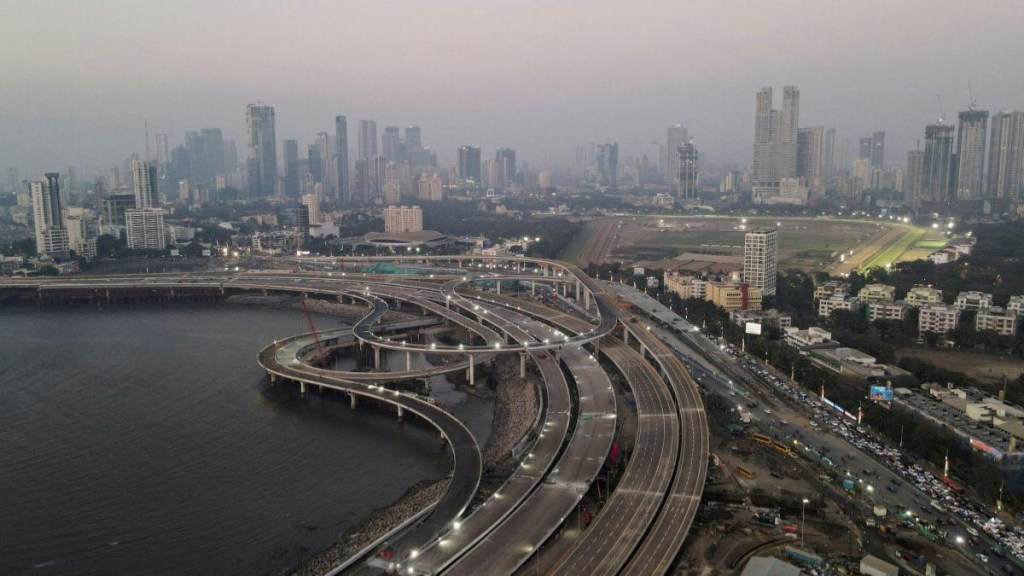Mumbai’s road network is undergoing a massive makeover. The Mumbai Metropolitan Region Development Authority (MMRDA) has rolled out a Rs 58,000-crore plan to encircle Mumbai with a network of ring roads. Designed to ease the city’s notorious traffic congestion, the project aims to cut travel times, provide smoother connectivity, and transform Mumbai’s transport landscape over the next five years, the Indian Express reported.
The plan will see the construction of over 90 kilometers of new roads, bridges and tunnels, forming a web of connectivity around Mumbai. According to the IE report, this ambitious project, which has been approved by the MMRDA, is set to cover the city from all sides, offering easy access to the Gujarat border in the north, Konkan Maharashtra in the south, and Western Maharashtra. It is envisioned as a game-changer for commuters, rerouting heavy traffic away from Mumbai’s congested core and ensuring faster, more efficient travel.
Mumbai has long struggled with traffic snarls and overburdened infrastructure. In recent years, however, the city has witnessed several major infrastructure projects. The newly announced ring road network is part of a broader vision to tackle the city’s congestion problems head-on. The project, which involves cooperation between the MMRDA, Brihanmumbai Municipal Corporation (BMC), Maharashtra State Road Development Corporation (MSRDC), and the National Highways Authority of India (NHAI), is a critical step in addressing Mumbai’s long-term traffic woes.
Mega plan of ring roads
At the heart of this mega plan are seven outer and inner ring roads, currently in different stages of tendering and development. These roads are strategically planned to ensure seamless connectivity, in line with MMRDA’s vision of “Mumbai in Minutes”. The ultimate goal is to reduce travel time across the city to under an hour.
“When we say Mumbai in minutes, it should not take more than 59 minutes to travel from one end of the city to the other,” MMRDA Commissioner Dr Sanjay Mukherjee explained in an interview with The Indian Express.
The new roads are being designed with tolls in mind, aiming to ease the burden on existing infrastructure while ensuring that the city’s growing traffic needs are met. These upcoming projects also address a long-standing challenge in Mumbai’s transport network — poor east-west connectivity, which has historically lagged behind the more dominant north-south movement.
Key projects
Key projects in this comprehensive plan include the Versova-Bandra Sea Link, Versova-Dahisar and Mira Bhayander-Dahisar Link Road, the Alibaug-Virar Multi Modal Corridor, and the Vadodara-Mumbai Expressway. These roads will form a complete ring around Mumbai, combining sea links, tunnels, and elevated bridges to offer multiple routes for both everyday travelers and commercial traffic, the IE report stated.
Mumbai’s unique geography, surrounded by water on three sides, coupled with its dense population, places immense pressure on the city’s current roadways and railways. “Few other cities have such a network of ring roads,” said Mukherjee. “Mumbai will be the first city with multiple ring roads traversing through sea, creek, forests, and urban highways, using tunnels and elevated bridges.”
The project, part of a larger infrastructure push amounting to Rs 3 lakh crore, has attracted international funding from agencies like the Japan International Cooperation Agency, the report further said. This ambitious plan is expected to not only ease congestion but also spur economic growth and urban development, strengthening Mumbai’s status as a global metropolis and boosting its contribution to India’s GDP.

